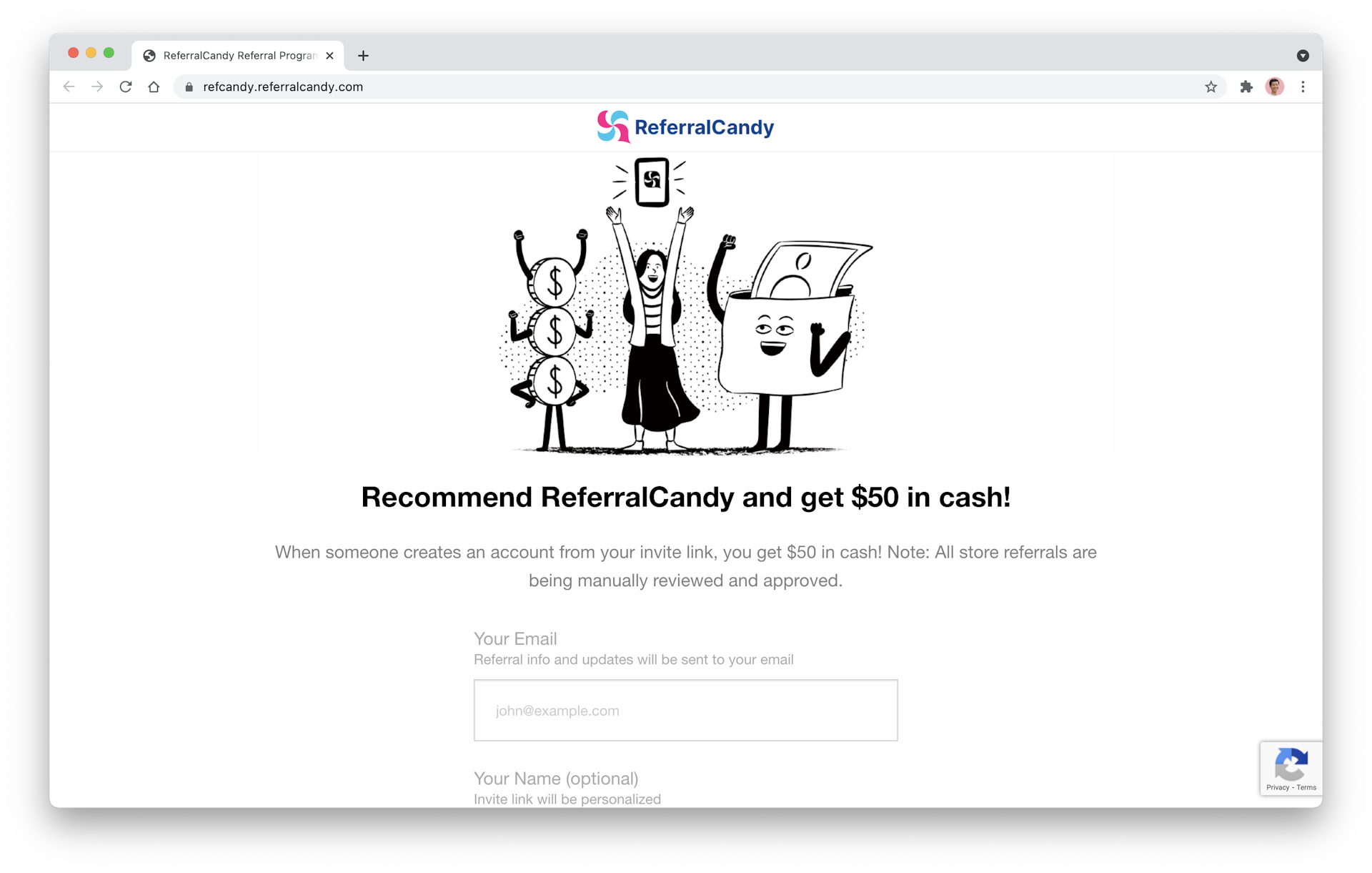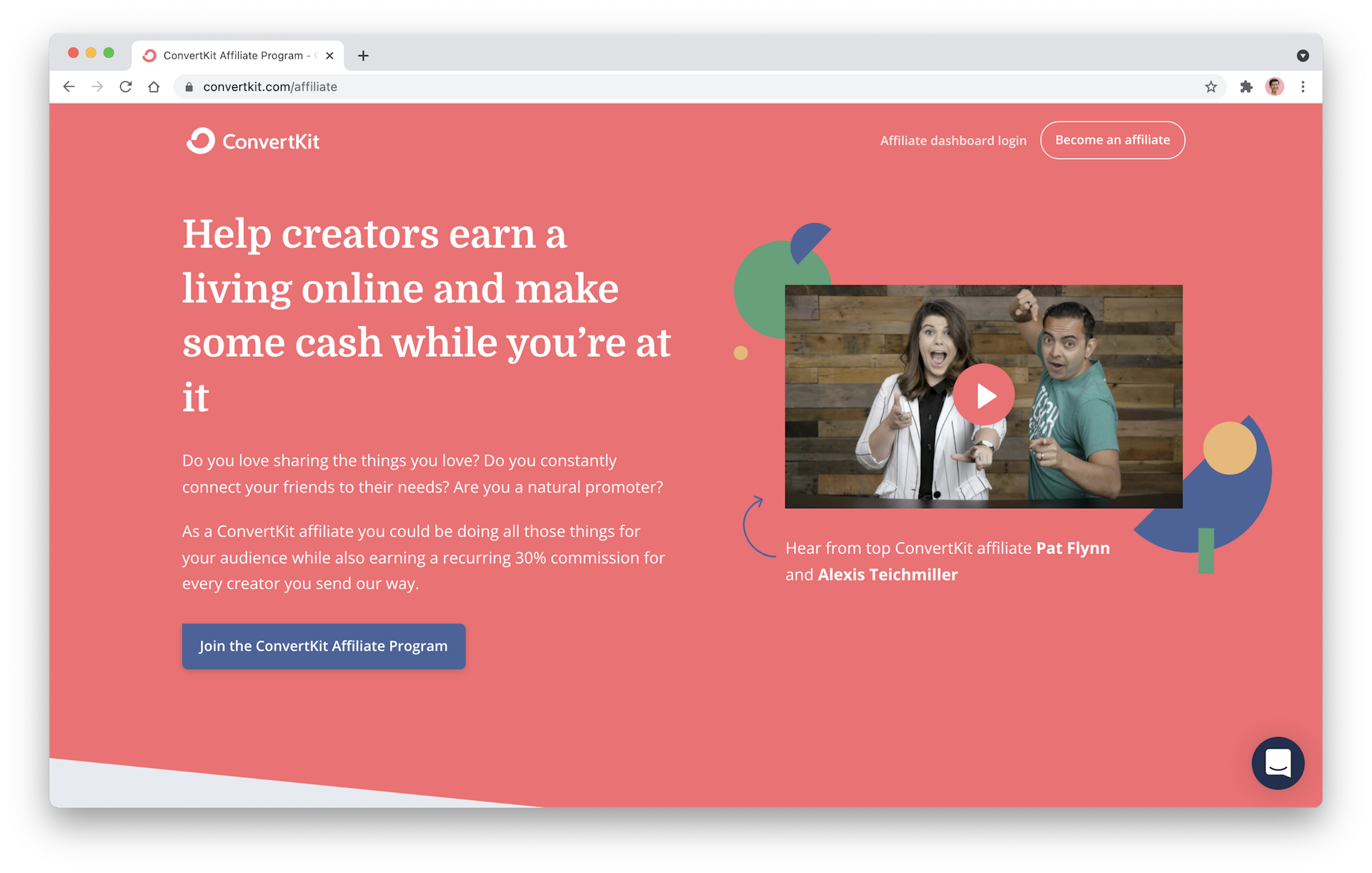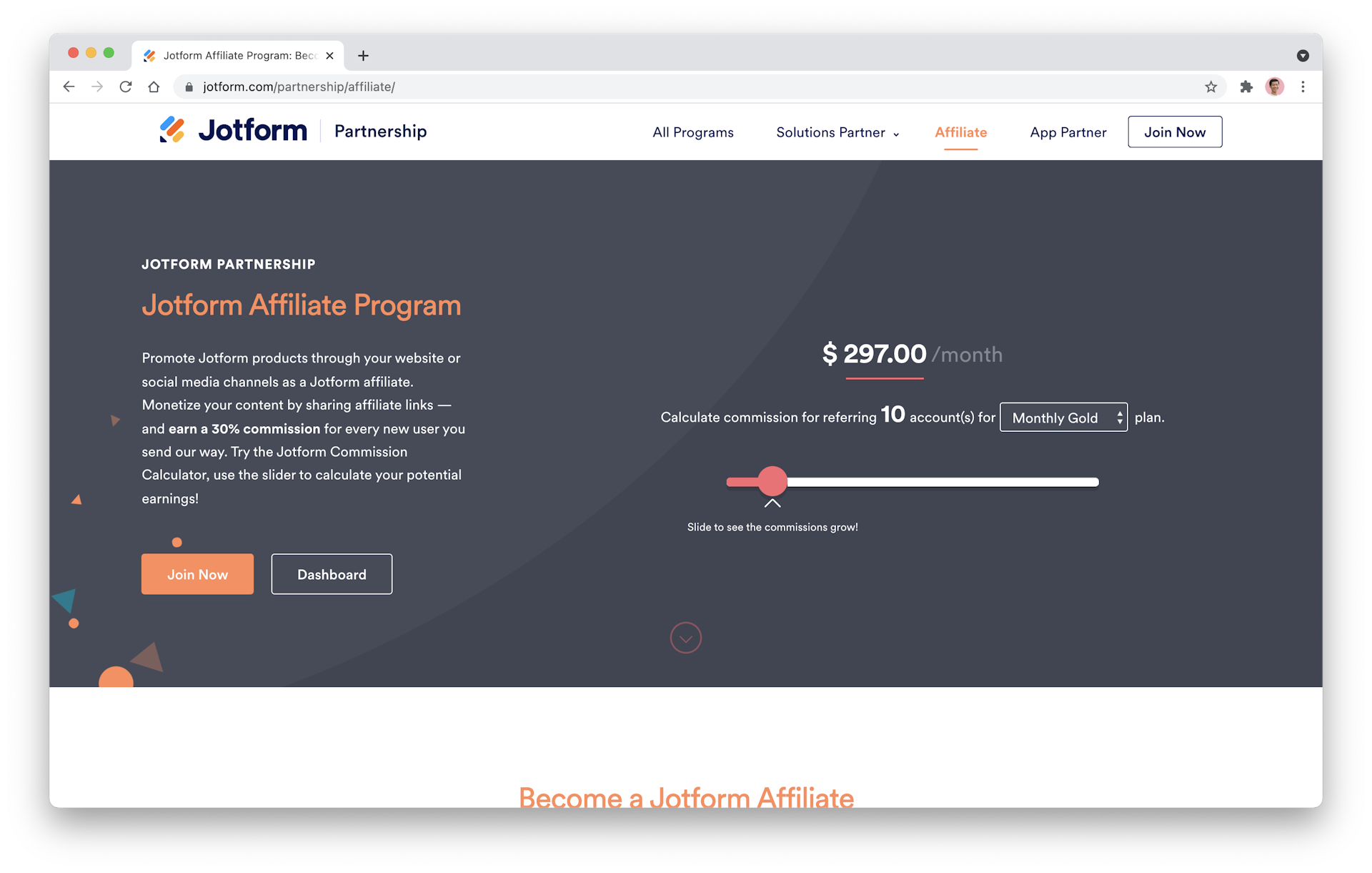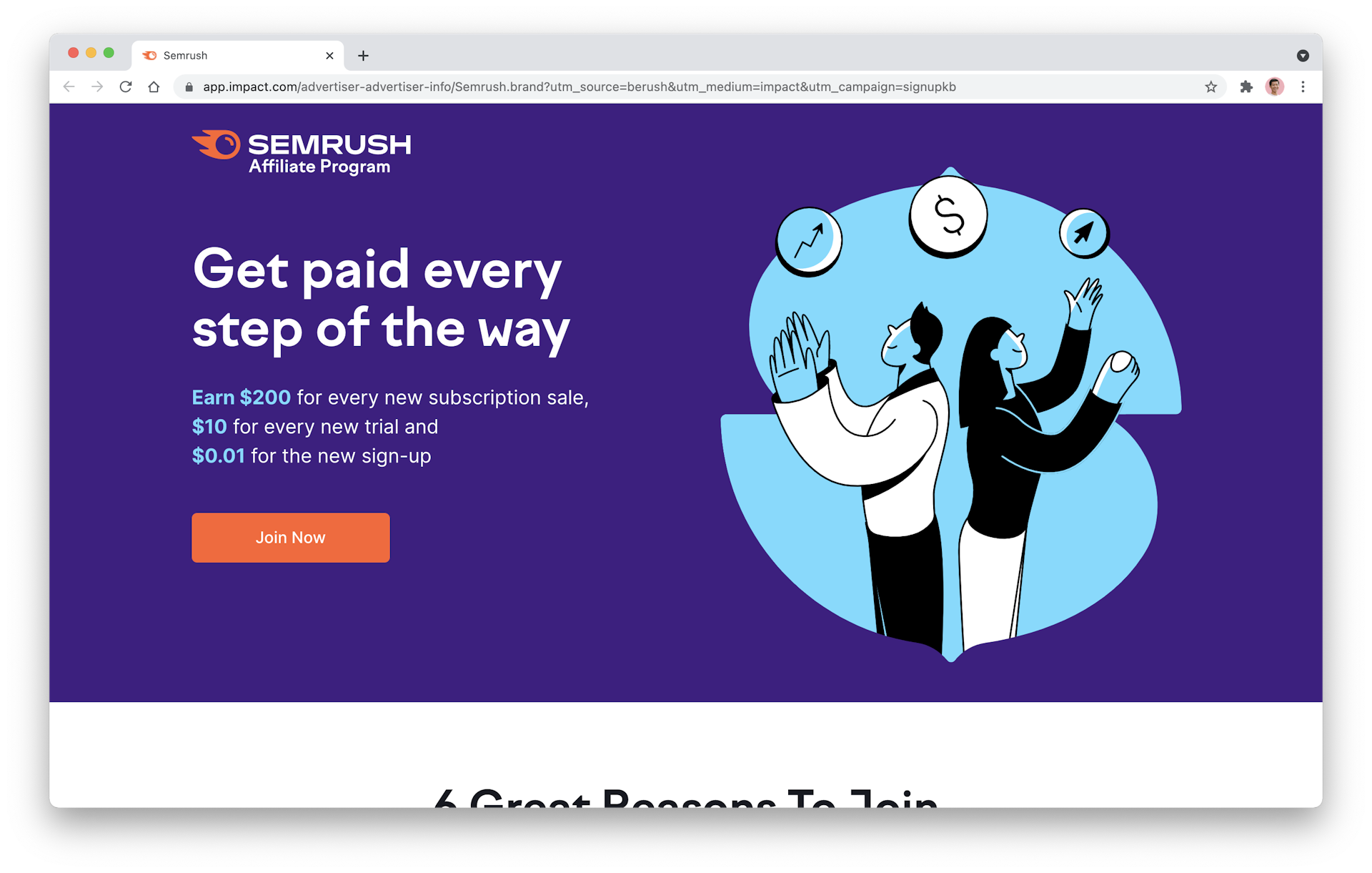marketing
Affiliate Marketing
Written on 07 November 2021
Before joining ReferralCandy, I never thought much about affiliate marketing. It wasn't a channel we used at Buffer, so I didn't know much about it.
But as I learned more about affiliate marketing, I realized how powerful it can be for some products. For example, I spotted this testimonial on affiliate management software LinkMink's homepage:
Affiliate marketing was key to growing ConvertKit to $10m ARR...
– ConvertKit Founder, Nathan Barry
Affiliate marketing can work for both ecommerce and SaaS businesses but I'll focus on SaaS here.
Conditions, rewards, promotions
Affiliates are like your salespeople. They are paid a commission—either a fixed amount or a percentage of the sales—for bringing in new customers.
From my research, there seem to be three key aspects to affiliate marketing:
- Conditions
- Commissions
- Promotions
Conditions are when an affiliate will earn their commission. You could pay your affiliates when they bring in a lead, a signup, or a subscriber. Some companies also set a time condition. For example, Shopify affiliates only earn their commission after the new customer has been active for two months.
Commissions are what you pay your affiliate. The further down the funnel, the higher the commission. For example, Semrush pays affiliates $0.01 for each new signup, $10 for each new trial, and $200 for each new subscriber. To determine the commissions, you should know your customer acquisition cost (CAC) and customer lifetime value well to keep the channel profitable. Generally, ads have the highest CAC. So if you know your ad CAC, you can experiment with values lower than that for your affiliate commissions.
Promotions are what you do to grow your affiliate program. Setting up your affiliate program is just the first step. You also need to recruit your affiliates and help them succeed. Oftentimes, this means reaching out to creators or influencers with the audience you want to reach. Some companies, such as ConvertKit, go another step further by providing training courses, marketing assets, and webinars to help affiliates.
Another key component, which isn't exactly a part of the affiliate program, is your product. If your product is great, it is easier to recruit affiliates because it looks good on them to recommend a great product and they know it's easier to get people to try (i.e. easier for them to earn affiliate commissions).
Examples
Here are a few interesting affiliate programs with different commission setups:
1. ReferralCandy

Being in the referral space, we have to have an affiliate program ourselves. We pay affiliates $20 for each new signup with a credit card even if the signup does not subscribe at the end of the trial. We recently raised the commission to $50, until the end of the year, as an experiment. Most of our affiliates are bloggers.
2. Shopify

Shopify pays affiliates two times the monthly plan selected by the new merchant. But the new merchant has to be active for at least two months. The new merchant is essentially paying the commission. As long as the merchant stays longer than two months, this will be profitable for Shopify.
3. ConvertKit

ConvertKit pays a recurring 30% commission as long as the new customer's account is active. Recurring commissions are attractive because affiliates could be earning commission forever. But the upfront payment is usually much lower. And some affiliates feel that whether the person they refer stays is more dependent on the company and its product, and is out of their control.
4. Jotform

Jotform also pays a recurring commission but only for the first year.
5. Semrush

As mentioned earlier, Semrush pays commissions for signups ($0.01), trials ($10), and subscribers ($200). With such a complex setup, you would need a tool that can automate this. It seems like they are using Impact.
Tools
If you are interested in implementing an affiliate program, here are a few tools to check out:
At ReferralCandy, we use ReferralCandy to run our affiliate program. That said, we had to go through some technical implementation because ReferralCandy is best suited for ecommerce businesses.
The best affiliates are often creators because they have an engaged, niche following. They enable businesses to reach specific audiences effectively.
And as more people join the creator economy, I sense that affiliate marketing is going to be a more important channel for many businesses.
What do you think?